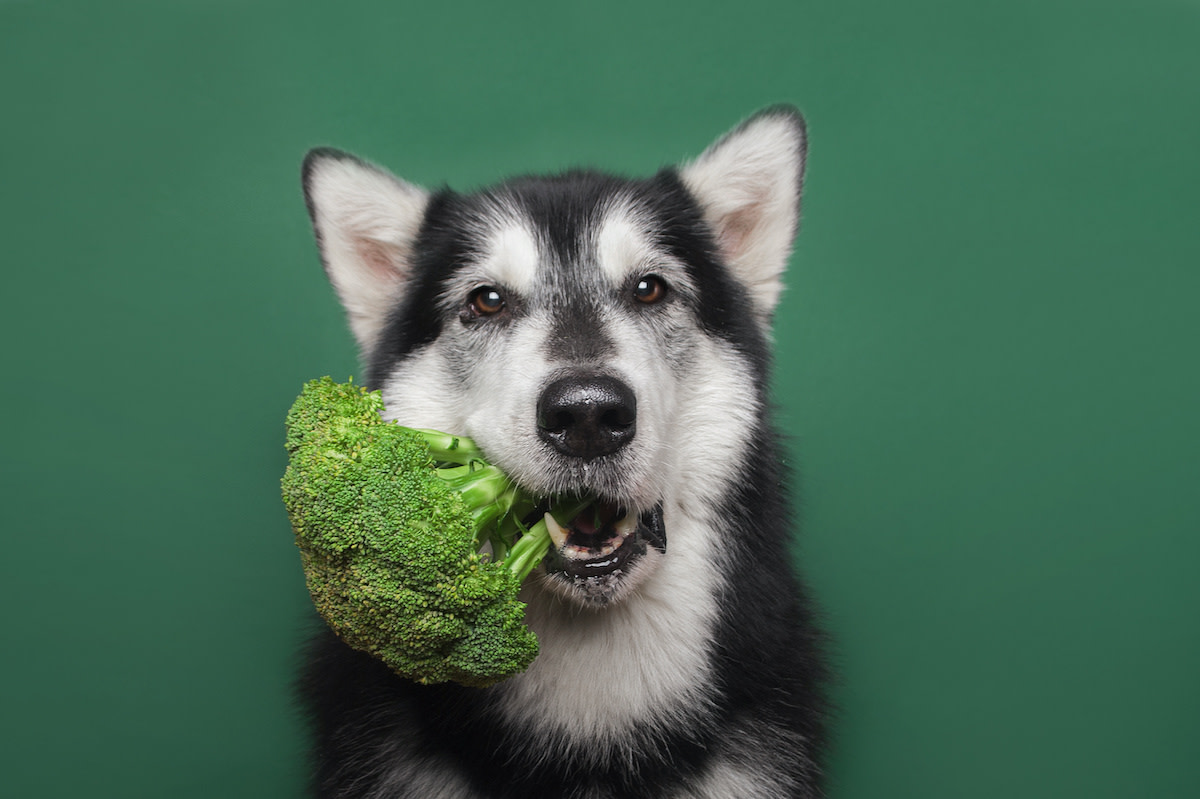Is Broccoli Good for Dogs? Broccoli Benefits and Risks for Dogs
Written by MasterClass
Last updated: Mar 18, 2022 • 3 min read
Broccoli is a superfood that can supplement your dog's diet with essential nutrients; however, there are several factors you should consider beforehand. Read on to learn the connection between broccoli and dog health.
Learn From the Best
Is Broccoli Good for Dogs?
You can use broccoli as a nutritious, low-calorie snack to supplement your pet's regular dog food or kibble. Dogs can eat raw broccoli as an occasional treat, but fruits and vegetables should not comprise more than ten percent of your dog's daily caloric intake.
Individual dogs react to foods differently, so test your dog’s tolerance with a small piece of broccoli before you introduce a larger amount of broccoli into their diet. This initial, small amount is especially important when feeding small dogs or specific dog breeds with digestive issues.
3 Potential Health Benefits of Feeding Broccoli to Dogs
Small quantities of cooked or raw broccoli florets can be a nutritious addition to your dog's diet. Here are three potential health benefits of broccoli for your pet:
- 1. Immunity support: Like other green vegetables, broccoli contains several antioxidants that can ward off free radicals and improve your dog's immune system. Vitamin A, vitamin C, and vitamin K are essential vitamins your dog needs to regulate efficient immune function and other body functions.
- 2. Decreased inflammation: Broccoli contains several nutritious minerals with anti-inflammatory properties, including magnesium and potassium. These organic compounds work with calcium to fortify your dog's bone density and improve their joint mobility. Minerals can also improve your dog's cognition, eyesight, muscle recovery, and joint function to help them remain active and happy into old age.
- 3. Fortified digestive system: The high fiber content of broccoli can help your dog maintain efficient digestion and bowel movement regularity. Fiber will also help your dog maintain a healthy weight, which can reduce your pet's risk of joint and spinal issues. These benefits result from feeding your dog broccoli without additional oils or seasonings since feeding them the opposite could result in digestive upset. Additionally, ensure you practice portion control when feeding your dog raw or cooked broccoli so as not to surpass your pet’s limited daily calories.
3 Potential Health Risks of Feeding Broccoli to Dogs
While feeding your dog plain broccoli in small quantities can lead to health benefits, there are negative impacts to consider, too. Here are three potential risks related to feeding your pet this cruciferous vegetable:
- 1. Allergic response: Closely monitor your canine companion the first time you feed it human food. If your pet does not present symptoms of an allergic response, you can steadily increase serving sizes. Common allergy symptoms include swelling, itching, and stomach upset.
- 2. Choking: Thick broccoli stalks can pose a serious choking hazard to your pooch if they lodge in your dog's airway. If you feed your dog broccoli and other vegetables—like cucumbers, sweet potatoes, and green beans—it is best to prepare them in manageable, bite-size pieces to avoid your dog choking. If you feed broccoli to puppies or older dogs, consider blending these small pieces into a purée to assist their digestion.
- 3. Gastrointestinal upset: Fibrous broccoli stems and large florets can be difficult for your dog to break down in their stomach. These larger pieces can collect in your pet’s intestinal tract and form a blockage and constipation. Broccoli also contains isothiocyanates—small molecule metabolites that can cause your pet to develop stomach upset, gas, and diarrhea if consumed in large quantities. Always practice moderation when giving your dog foods outside their regular diet.
Before Sharing With Your Pooch
Certain human foods can cause adverse reactions in canines, so always consult your veterinarian to determine whether it is safe to add these foods to your pet’s diet. This article is for educational and informational purposes and is not a substitute for medical or dietary advice.
Want to Learn More About Training the Goodest Boy or Girl?
Your dream of having a dog who understands words like “sit,” “stay,” “down,” and—crucially— “no” is just a MasterClass Annual Membership away. The only things you’ll need to train up a well-behaved pup are your laptop, a big bag of treats, and our exclusive instructional videos from superstar animal trainer Brandon McMillan.
